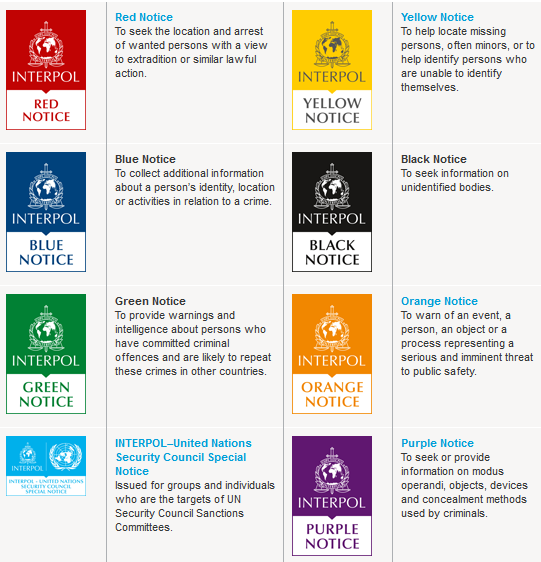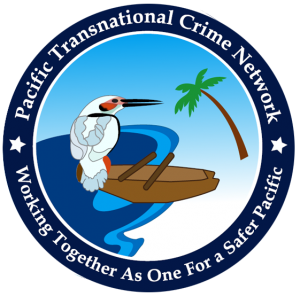- Jurisdiction
- Investigators of organized crime
- Controlled delivery
- Physical and electronic surveillance
- Undercover operations
- Financial analysis
- Use of informants
- Rights of victims and witnesses in investigations
- Summary
- References
Published in May 2018
Regional Perspective: Pacific Islands Region - added in November 2019
Regional Perspective: Eastern and Southern Africa - added in April 2020
This module is a resource for lecturers
Investigators of organized crime
Cases against individuals participating in organizing criminal groups usually develop in the following manner: a law enforcement agency establishes a reasonable belief about the existence of (organized) illegal activity in its jurisdiction. Depending on the jurisdiction, a case initiation report is prepared and reviewed by a prosecutor or an investigative judge for sufficiency. Then further evidence is gathered to determine whether there is enough proof for formal charges to be brought.
The enforcement of domestic laws against organized crime is not standardized. Some jurisdictions have specialized enforcement units to investigate only organized crime cases, whereas others have no distinct organized crime enforcement unit(s). In any case, as organized crime cases can be complex and require some degree of specialization, there is a need for multiagency task forces to focus on specific crimes or organized criminal groups of concern for crimes such as human trafficking, drug trafficking, wildlife crime, falsification of medical products, financial crimes and cybercrime.
Professional networks of law enforcement personnel often exchange information on a reciprocal basis. For those networks to be effective, confidence first needs to be established. In practice, this cooperation is sometimes undermined by competing national agendas, limited communication and information-sharing, mistrust as well as significant capacity differences between countries. Of course, compatible laws are necessary to provide a basis for transnational law enforcement efforts. These enforcement efforts are made easier by the wide adherence to the Organized Crime Convention and its Protocols, which provide the legal basis for law enforcement cooperation. In this context, articles 27 and 28 of the Organized Crime Convention are of particular relevance.
The practical problems of investigative cooperation at the international level are significant. Many countries have multiple agencies with enforcement authority (e.g., national police agency, customs services, local police agencies, specialized organized crime agencies), so jurisdictional issues and communication are crucial considerations. There are also logistical problems with disparate information technology, language barriers, differential access to resources and specialized equipment, and procedures for obtaining approvals for information access and use of special investigative techniques.
Despite these obstacles, countries recognize that the threat of transnational organized crime activity forces them to be more interdependent, because there is no other way to build cases against offenders who communicate, organize and move people, goods, services and illicit profits across borders.
Law enforcement agencies from different countries have thus expanded the scope of their activities abroad. Law enforcement liaison officers assigned to another country are often affiliated either with the embassy of the country they represent, or an investigative unit or task force. Liaison officers are usually responsible for establishing a communications channel between their agency and its counterpart in a foreign country, acting as the "human interface" between different organizations.
INTERPOL is the largest institution for international police cooperation and it devotes considerable effort to transnational organized crime.
|
The world's largest international police organization: INTERPOL With 192 member States, INTERPOL is the world's largest international police organization. Its goal is to enable police around the world to work together to make the world a safer place. In order to effectively fulfil its cross-border activities, INTERPOL functions under international law. It is recognized as an international organization by the United Nations and in 1996, the United Nations General Assembly conferred INTERPOL observer status. Contrary to what some might think, INTERPOL is not a supranational police agency with investigative powers and it does not send officers into countries to arrest individuals. All investigations and arrests in Member States are carried out by the national police in accordance with national laws. Each Member State has an INTERPOL National Central Bureau, which is staffed by law enforcement officers and acts as a designated contact point. Notably, the Constitution of the organization specifies that international police cooperation is to be conducted within the spirit of the Universal Declaration of Human Rights. This commitment to human rights is expressed, for instance, through the Organization's cooperation with international courts and tribunals and through the careful processing of personal data. In a similar fashion, clear guidelines on neutrality have been laid out, which forbid INTERPOL to undertake any activities of a political, military, religious or racial character. At the very core of INTERPOL's mandate lies the exchange of police information. The organization manages secure communication channels that connect National Central Bureaus in all Member States, along with other authorized law enforcement agencies and partners, and which give access to a range of criminal databases. INTERPOL offers to its Member States a system of information exchange, the "Notice System", which is used by competent authorities to communicate information about crimes, criminals and threats. The information disseminated via this system concerns individuals wanted for serious crimes, missing persons, unidentified bodies, possible threats, prison escapes, and criminals' modus operandi ( INTERPOL, 2018). The picture below shows the types of notice that INTERPOL's General Secretariat can issue, at the request of National Central Bureaus:
Current list of wanted persons (Red Notices)Current list of missing persons (Yellow Notices) |
In addition to INTERPOL, there are regional organizations with a very similar structure and mandate to INTERPOL. Europol is the law enforcement agency of the European Union that handles criminal intelligence and combats organized crime. Its mission is to support its Member States in preventing and combating all forms of serious international organized crime and terrorism. ASEANAPOL, AFRIPOL and AMERIPOL are similar law enforcement organizations in Asia, Africa and the Americas, respectively, designed to promote and carry out investigations of crimes that cross-national borders.
Regional perspective: Pacific Islands Region
The Pacific Islands Law Officers Network (PILON) is a network of senior law officers from Pacific Island countries, including Australia and New Zealand, who come together to address domestic and regional law and justice issues. The PILON Secretariat is the coordination mechanism for PILON and is responsible for progressing the PILON Work Plan and assisting with the annual meeting. The Secretariat has been based in Apia, Samoa, since early 2011. More information: Pacific Islands Law Officers' Network
The Pacific Transnational Crime Network (PTCN) has been working collaboratively with the Pacific law enforcement community since its inception in 2002. The PTCN provides a Police-led proactive criminal intelligence and investigative capability to combat transnational crime in the Pacific through a multi-agency and regional approach. It operates with the support of the Australian Federal Police, New Zealand Inc., and the Joint Interagency Task Force-West. The PTCN also partners with a number of Pacific-based stakeholder organisations including: The Pacific Islands Forum Secretariat; Oceania Customs Organisation; Pacific Immigration Development Community; Pacific Islands Forum Fisheries Agency; Pacific Patrol Boat Program; and Financial Intelligence Units. More information: Pacific Transnational Crime Network |
Regional perspective: Eastern and Southern AfricaSouthern Africa Regional Police Chiefs Coordination Organization (SARPCCO)SARPCCO was formed in 1995 to work independently from the Southern African Development Community (SADC) to address transnational organized crime, in coordination with the INTERPOL Regional Bureau for Southern Africa. SARPCCO was fully integrated into SADC structures in 2006. Since its beginning, SARPCCO has played a pivotal role in enhancing police cooperation among member countries, carrying out regular reviews of joint crime management strategies given changing national and regional needs and priorities. Among other essential activities, SARPCCO has developed training modules, workshops, and seminars for law enforcement agencies, preventive and combating strategies against cross-border crimes, analysis of contemporary crime trends, forms, and patterns, and recommendations to governments of the Member States concerning matters affecting effective policing in the region. Within this framework, SARPCCO Member States signed the Multilateral Cooperation Agreement on Combating Crime within the Region in 1997 and the Agreement in Respect of Cooperation and Mutual Assistance in the Field of Crime Combating as the basis of regional police cooperation. The latter provides for provides for police officers to travel across borders in the region to undertake investigations or the seizure of exhibits, and questioning of witnesses in connection with any such offence. Nevertheless, the local police force/service maintains authority in effecting the relevant police actions in each country. SARPCCO established a Women Network Sub Committee to the enhancement of gender quality within Police Forces/Services, and a Center of Excellence. Source: SARPCCOEastern Africa Police Chiefs Cooperation Organization (EAPCCO)The first meeting of Police chiefs from Eastern Africa in 1998 in Kampala founded the Eastern Africa Police Chiefs Cooperation Organization (EAPCCO), a police cooperation mechanism bringing together the majority of countries in the region. EAPCCO operates under the umbrella of INTERPOL. It articulates the cooperation of member countries’ police in joint training, simultaneous joint operations, joint investigation teams, and information sharing. Member countries also host centers of excellence in various policing fields such as forensics, community policing, public order, and cyber analytics. Kenya host the regional Centre of Excellence in Counter-Terrorism. Source: InterpolPolice Cooperation within the EACThe East African Community (EAC) is a regional intergovernmental organization headquartered in Arusha, Tanzania. It was established by a Treaty signed in 1999 (and entered into force in 2000) with the goal of widening and deepening economic, political, social and cultural integration in order to improve the quality of life of the people of East Africa through increased competitiveness, value-added production, trade, and investments. The Treaty for the Establishment of the EAC (art. 124) recognizes the need for peace and security within the East African Partner States. Accordingly, the EAC developed a regional strategy for peace and security which covers collaboration on cross border crimes, auto theft, drug trafficking, terrorism, money laundering, and other crimes. Also, it established a Sectoral Council on Interstate Security to oversee the implementation of ever-increasing areas of cooperation. In matters of police cooperation, the EAC Secretariat has fostered regular Police chiefs’ meetings, the development of joint training programs, enhanced border surveillance and joint operations, the collective use of scientific crime management assets, among other activities. Source: EAC; Find EAC key documents here.Police Cooperation within the African UnionThe African Union Mechanism for Police Cooperation, AFRIPOL, was established by the Algiers Declaration at the African Conference of Directors and Inspectors General of Police, on 10-11 February 2014. AFRIPOL is an independent mechanism for police cooperation for the Member States of the African Union. AFRIPOL seeks to establish a framework for police cooperation at the strategic, operational and tactical levels between Member States police institutions. Art. 3 of AFRIPOL Statute defines the following objectives:
Source: AFRIPOLENACT: Enhancing Africa’s response to transnational organized crimeENACT is a project under the Pan-African Programme of the European Union that works to mitigate the impact of transnational organized crime in Africa on development, governance, security and the rule of law. It achieves this in two ways: first, by building knowledge and offering evidence-based analysis of transnational organized crime in Africa, which will inform policy and enhance cooperation at the regional and continental level. Secondly, it builds skills and capacity among key African stakeholders to better respond to this phenomenon and mitigate its impact. ENACT is a three-year program (2017-2019) implemented by a partnership of expert organizations, namely the Institute for Security Studies and INTERPOL, in affiliation with the Global Initiative against Transnational Organised Crime. INTERPOL participates in Project ENACT to assist police in Africa to adopt proactive strategies to combat organized crime threats, facilitate information exchange and enhance their investigative skills. Source: ENACT |


